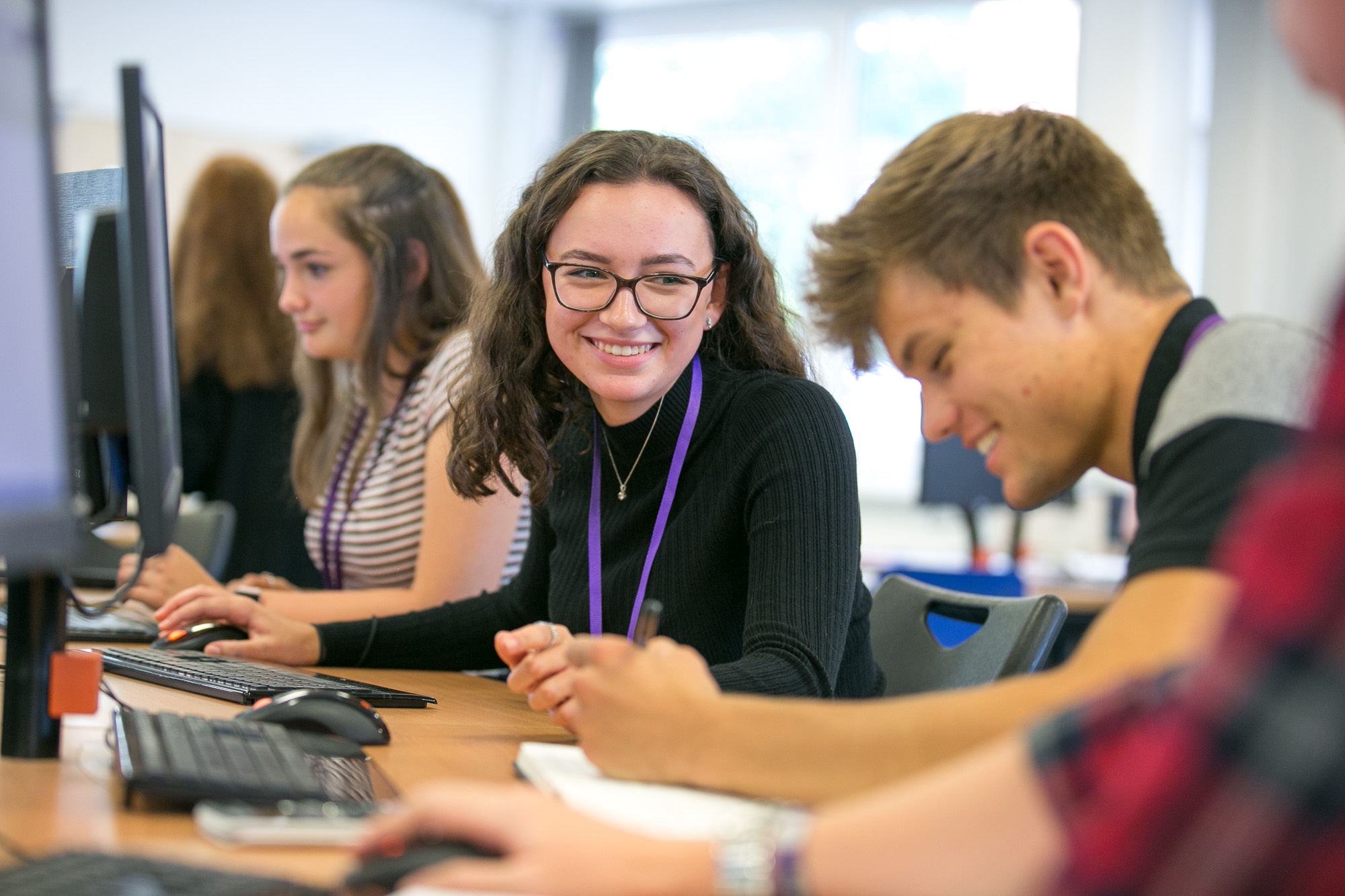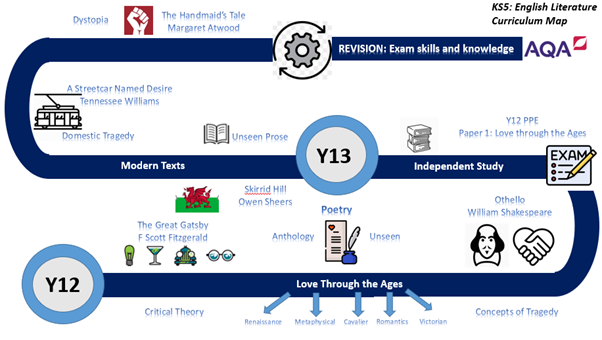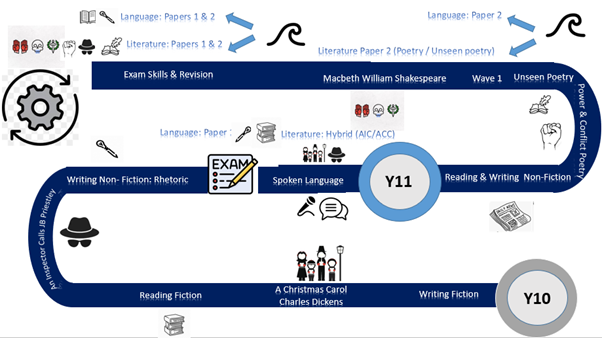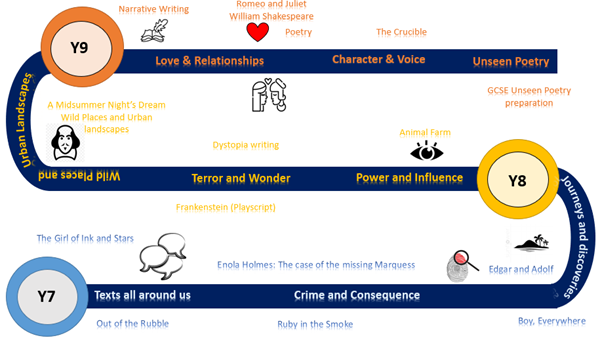English
Welcome to our English Department
Who We Are:

- Mrs M Lloyd – Curriculum Leader for English
- Mrs L Fyfe - Assistant Headteacher
- Mrs S Pepper - KS3 Leader
- Miss A Giles - Literacy Leader
- Mrs C Armstrong
- Mrs T Beckett
- Mrs S Bisset-Garside - Student Voice Co-Ordinator
- Mr L Hadley – Curriculum Leader for Media
- Mr M King
- Miss P Leggatt
- Mrs K Massey - Pupil Premium Champion
- Ms M Meanwell
- Mr R Murphy
- Mr R Myles
- Miss N Root
Key Stage 3
At the Emmbrook School, we are committed to offering an English curriculum that fosters a passion for literature from across the world. Our aim is to promote independent and active learning while ensuring that we cater to the needs of all our KS3 students. In this phase, students are given opportunities to develop skills in reading, writing and oracy (speaking and listening): the understanding they develop of grammar, linguistics, academic literary concepts, context and form, are key building blocks for later success.
At Key Stage 3, students read narratives, drama texts and poetry across the literary canon. They are also given opportunities to analyse media and non-fiction texts. The schemes of learning encourage the acquisition of a depth and breadth of vocabulary and expand their ability to write for specific audiences and purposes. In order to reflect the diversity of both our student body and the world they live in, we explore texts from different eras and cultures.
Home Learning is set regularly to promote independent learning and the consolidation of skills learnt in class. In addition to the home learning activities, we have regular library lessons, and students are encouraged to read there as well as at home on a regular basis.
KS3 teachers use Flash Marking to monitor progress and to identify the progress of key skills. Work done in class is marked regularly, and clear feedback is given for students to reflect and act upon. Students can use this detailed feedback to improve their skills, and the assessments focus both on their understanding of the texts as well as their mastery of the skills they have been learning (evidenced through the Flash Marking codes they have learnt).
We hope that our KS3 students enjoy the opportunities available to engage creatively and continue to develop their skills and are thrilled to be able to provide them with a variety of English-focused extra-curricular clubs (book club, creative writing club, etc.). We also enjoy taking the students out on trips to the theatre to experience the texts they study brought to life in a different context.
Key Stage 4
Examination Board: AQA
There are no tiers in English: everyone sits the same papers for GCSE: AQA English Language (8700) and AQA English Literature (8702).
Being able to speak, read and write fluently and with confidence is essential in modern life. The English Language and English Literature courses give our students every opportunity to develop their ability to express themselves effectively and confidently. Both subjects are complimentary and involve analysing novels, poetry and drama and understanding how writers communicate through language. Students also get the chance to show their flair and ability to write through the creative and persuasive components of the Language GCSE, taking ownership of the skills they have seen established authors use.
Given that they are core subjects, all students will study both English Language and English Literature. Each course is assessed at the end of Y11 with 100% examination.
The English department also makes use of GCSEPod, SenecaLearning, Massolit and as well as visits to the theatre to support all their students with the consolidation of the knowledge they acquire during the course.
We encourage students to purchase their own copies of the texts that are studied at GCSE, so they can make detailed annotations, and so they can use them to support their revision:
Key texts:
Macbeth – William Shakespeare
A Christmas Carol – Charles Dickens
An Inspector Calls – J B Priestley
Power and Conflict Poetry – Anthology provided by the school
Progression:
If you have studied both English Language and English Literature, and achieved a GCSE grade 5 in both, you can study English Literature at A-Level. Even if you choose not to study English at A-level, well-developed English skills are vital in all areas of Sixth Form study as well as in the workforce, since all employers look for good standards of English.



November 2024
